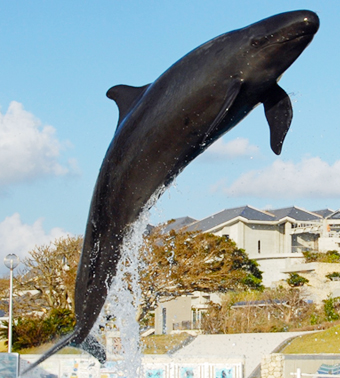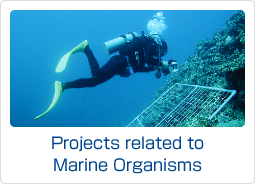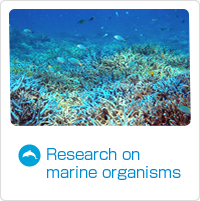- Home
- Okinawa Churashima Foundation Research Institute
- Studies of Marine Animals
- Research activity report
- Publication of scientific paper on the relationship between pregnancy and white blood cells in female false killer whales

Research on marine organisms
Publication of scientific paper on the relationship between pregnancy and white blood cells in female false killer whales

False Killer Whale
False killer whales are a species of small toothed whale widely distributed in warm waters around the world. Nine false killer whales are currently being reared at Okinawa Churaumi Aquarium.
Okinawa Churaumi Aquarium in collaboration with Mie University studied blood data from three female false killer whales from approximately 2006 to 2017. The study was undertaken to shed light on the reproductive physiology of false killer whales. The results showed fluctuations in the concentration of the hormone progesterone in the blood. It also showed that the length of the estrous cycle was 40.5 days, and that gestation lasted for 14 months. White blood cell counts were at their lowest during ovulation, but gradually elevated towards the luteal phase. White blood cell counts were significantly higher during gestation than pre-pregnancy, particularly during the early stages of gestation. This is the first discovery in the world of a relationship between pregnancy in cetaceans (whales and dolphins) and their white blood cell counts.
Authors
Noriko FUNASAKA, Motoi YOSHIOKA, Keiichi UEDA, Haruka KOGA, Makio YANAGISAWA, Sotaro KOGA and Kouji TOKUTAKE (Name in bold: Churashima Foundation staff)
Title
Long-term monitoring of circulating progesterone and its relationship to peripheral white blood cells in female false killer whales Pseudorca crassidens
Title of Journal
The Journal of Veterinary Medical Science
DOI
10.1292/jvms.18-0075
Copyright (c) 2015 Okinawa Churashima Foundation. All right reserved.




























